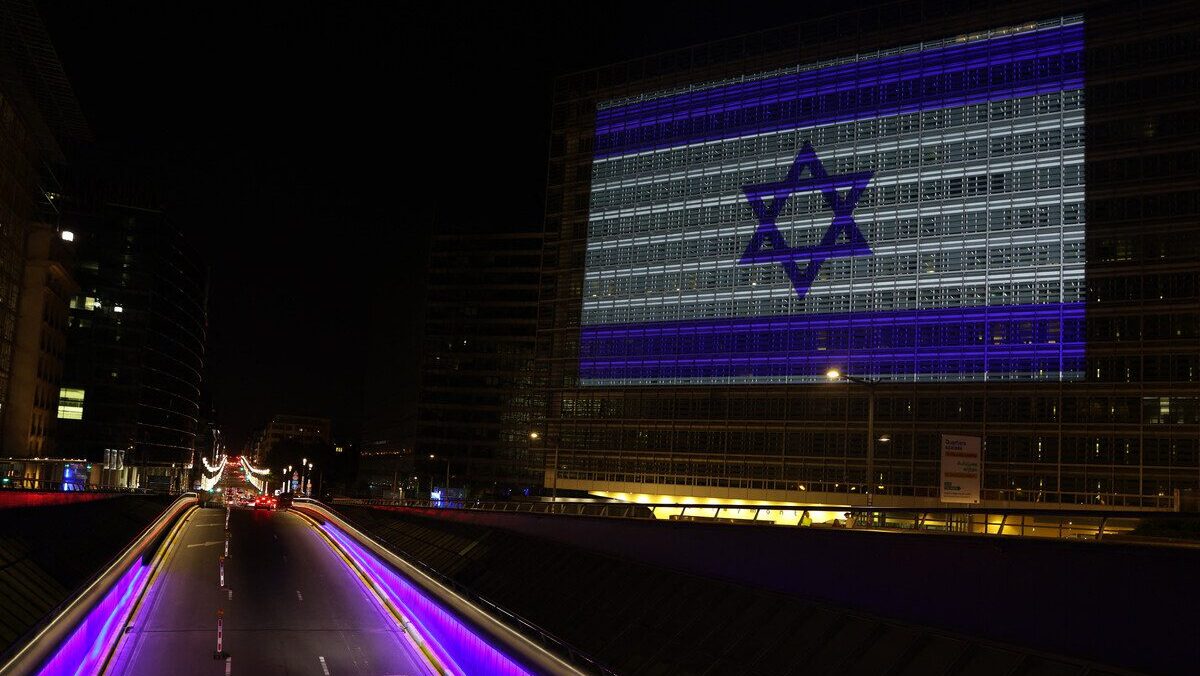
Israeli flag displayed on the Berlaymont, the headquarters of the European Commission.
Photo by JOHANNA GERON / AFP
Just hours after Enlargement Commissioner Olivér Várhelyi announced the immediate freezing of nearly €700 million in EU aid to the Palestinian Authority on Monday, October 9th, the EU’s foreign affairs chief, Josep Borrell, said the Commission “will not suspend the due payments” after all.
According to Borrell, the suspension of payments would amount to “punishing all Palestinian people,” which would be counterproductive to the EU’s interests in the region and further embolden terrorists.
The top diplomat is not the only one in Brussels to argue for prolonged funding, as Janez Lenarčič, the EU’s Crisis Management Commissioner also said on X that “EU humanitarian aid to Palestinians in need will continue as long as needed.”
The Commission almost immediately began to backtrack on Várhelyi’s statements, saying in a press release that it’s not suspending, but simply “reviewing” the EU’s financial assistance to Palestine—and not only to ensure that EU funds will not end up in the hands of terrorists, but also to see if the aid needs to be increased “in light of the changed circumstances on the ground.”
“The Commission will carry out this review as soon as possible with Member States,” the press release says, adding that “in the meantime, … there will be no suspension of payments.”
The EU foreign ministers are scheduled to meet on Tuesday to discuss the bloc’s responses to the war in Israel, and further divisions between member states about the funding are expected to surface.
The current split in the Commission already shows where certain countries’ positions may fall. While Várhelyi comes from Hungary—one of the most pro-Israel member states in the EU, Lenarčič hails from Slovenia, a traditionally more pro-Palestinian country.
The foreign ministers of Spain and Luxembourg also voiced their disagreements with Várhelyi’s announcement to suspend payments, saying that the decision was up to member states.
“Israel-Palestine is one of the most divisive issues in the EU,” one EU official told Politico under anonymity. “The intra-European divisions on this conflict are almost as old as the conflict itself.”
On Sunday, the EU as a whole issued a statement to condemn “in the strongest possible terms the multiple and indiscriminate attacks across Israel by Hamas.” But as it turns out, this rare moment of unity between EU member states was anything but, as the underlying cracks were present from the very beginning.
Several countries—including Luxembourg, Denmark, and Ireland—were pushing to include a general call for de-escalation, which was vetoed by a number of more pro-Israel countries, including Austria, who believed such a language would present Israelis as equally complicit.
The internal division was made obvious even by how each institution chose to show its solidarity. The European Commission’s headquarters were displaying enormous Israeli flags over the weekend, while the EU Council’s building was only lit up without any recognizable symbols, conveying a more general message.
